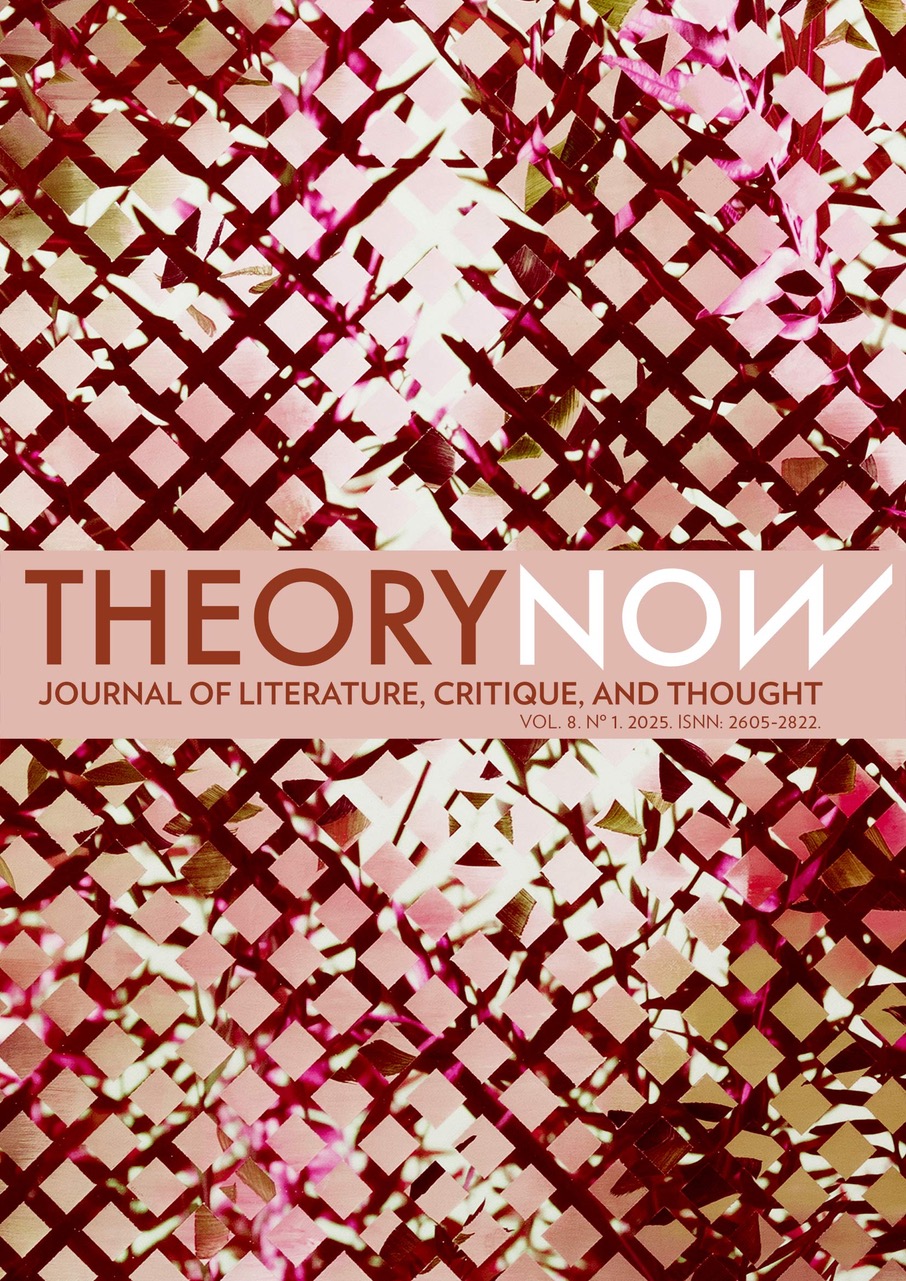Logics of Waste in Liliana Colanzi’s You Glow in the Dark
DOI:
https://doi.org/10.30827/tn.v8i1.28807Keywords:
Waste, Anthropocene, Ecocriticism, Liliana Colanzi, Latin American literatureAbstract
Waste, as anthropologist Myra Hird has put it, is the signifier of the Anthropocene, but it is not a univocal one. It operates simultaneously at symbolic and material levels, and its valences can be positive or negative. Waste is a key concept for thinking through what is at stake in the relationships that human beings foster with the more-than-human world and for considering the material limits on human attempts to dominate the environment. In this sense, literary fiction, with its ability to invigorate the imagination through its creative work with perspective and temporality, is a rich site of reflection on what waste means. A significant example is the Bolivian writer Liliana Colanzi’s You Glow in the Dark (2024), a short story collection in which waste of many kinds is omnipresent, from residues left behind by all organisms as they live and die to nuclear waste that threatens the physical integrity of those who come into contact with it. In this essay, I think alongside Colanzi’s stories, arguing that their use of waste as a prism through which to consider the passage of time, notions of creation and destruction, and the decentering of human perspective offers valuable lessons on how to live with the waste we create.
Downloads
References
Amago, Samuel. Basura: Cultures of Waste in Contemporary Spain. Charlottesville, University of Virginia Press, 2021.
Armiero, Marco. Wasteocene: Stories from the Global Dump. Cambridge, UK, Cambridge University Press, 2021. https://doi.org/10.1017/9781108920322
Belli, Gioconda. Waslala: Memorial del futuro. 1996. Barcelona, Planeta, 2006.
Caracciolo, Marco. Narrating the Mesh: Form and Story in the Anthropocene. Charlottesville, University of Virginia Press, 2021.
Chakrabarty, Dipesh. “The Climate of History: Four Theses”. Critical Inquiry, vol. 35, no. 2, 2009, pp. 197-222. https://doi.org/10.1086/596640
Colanzi, Liliana. You Glow in the Dark. Translated by Chris Andrews, New York, New Directions, 2024.
Douglas, Mary. Purity and Danger: An Analysis of the Concepts of Pollution and Taboo. New York, Ark, 1984.
Fornoff, Carolyn; Patricia Eunji Kim and Bethany Wiggin. “Introduction: Environmental Humanities across Times, Disciplines, and Research Practices”. Timescales: Thinking across Ecological Temporalities, Edited by Bethany Wiggin, Carolyn Fornoff, and Patricia Eunji Kim, Minneapolis, University of Minnesota Press, 2020, pp. vii-xxviii.
Hawkins, Gay. “Plastic Bags: Living with Rubbish”. International Journal of Cultural Studies, vol. 4, no. 1, 2001, pp. 5-23. https://doi.org/10.1177/136787790100400101
Heffes, Gisela. Políticas de la destrucción / Poéticas de la preservación: Apuntes para una lectura (eco)crítica del medio ambiente en América Latina. Rosario, Beatriz Viterbo Editora, 2013.
Hird, Myra J. “Waste Flows”. Discard Studies Compendium, https://www.discardstudies.com/discard-studies-compendium/#Wasteflows 3 Jun 2023.
Juskus, Ryan. “Sacrifice Zones: A Genealogy and Analysis of an Environmental Justice Concept”. Environmental Humanities, vol. 15, no. 1, 2023, pp. 3-24. https://doi.org/10.1215/22011919-10216129
Kaza, Silpa; Lisa Yao; Perinaz Bhada-Tata and Frank Van Woerden. What a Waste 2.0: A Global Snapshot of Solid Waste Management to 2050. Washington DC, World Bank, 2018. https://doi.org/10.1596/978-1-4648-1329-0
Kennedy, Greg. An Ontology of Trash: The Disposable and its Problematic Nature. Albany, SUNY Press, 2007.
Lerner, Steve. Sacrifice Zones: The Front Lines of Toxic Chemical Exposure in the United States. Cambridge, MA, The MIT Press, 2010.
Liboiron, Max, and Josh Lepawsky. Discard Studies: Wasting, Systems, and Power. Cambridge, MA, The MIT Press, 2022.
McKay, Micah. Trash and Limits in Latin American Culture. Gainesville, University of Florida Press, 2024.
Morton, Timothy. Ecology without Nature: Rethinking Environmental Aesthetics. Cambridge, MA, Harvard University Press, 2007.
____. The Ecological Thought. Cambridge, MA, Harvard University Press, 2010.
Pardo, José Luis. Nunca fue tan hermosa la basura. Barcelona, Galaxia Gutenberg, 2010.
“Passeio fotográfico em Abadia de Goiás”. Diário da Manhã, 19 Oct. 2015, https://www.dm.com.br/cultura/2015/10/passeio-fotografico-em-abadia-de-goias 28 Jun 2023.
Prádanos, Luis I. Postgrowth Imaginaries: New Ecologies and Counterhegemonic Culture in Post-2008 Spain. Liverpool, Liverpool University Press, 2018.
Reno, Joshua Ozias. “Toward a New Theory of Waste: From ‘Matter out of Place’ to Signs of Life”. Theory, Culture & Society, vol. 31, no. 6, 2014, pp. 3-27. https://doi.org/10.1177/0263276413500999
____. “What is Waste?” Worldwide Waste: Journal of Interdisciplinary Studies, vol. 1, no. 1, 2018, pp. 1-10. https://doi.org/10.5334/wwwj.9
Scanlan, John. On Garbage. London, Reaktion Books, 2005.
Song, Tian. “Global Warming as a Manifestation of Garbage”. Impasses of the Post-Global: Theory in the Era of Climate Change, Vol. 2, edited by Henry Sussman, Ann Arbor, MI, Open Humanities Press, 2012, pp. 106-25.
The Radiological Accident in Goiânia. International Atomic Energy Agency, 1988.
Viney, William. Waste: A Philosophy of Things. London, Bloomsbury, 2014.
Wiggin, Bethany. “The Germantown Calico Quilt”. Future Remains: A Cabinet of
Curiosities for the Anthropocene, edited by Greg Mitman, Robert Emmett, and Marco Armiero, Chicago, Chicago University Press, 2018, pp.149-58.
Zubiaurre, Maite. Talking Trash: Cultural Uses of Waste. Nashville, Vanderbilt University Press, 2019.
Published
How to Cite
Issue
Section
License
Theory Now. Journal of Literature, Critique, and Thought is an immediate open-access publication which is available at no cost for readers and authors alike. Authors are not charged any kind of fee for the editorial processing of their articles. Reading, downloading, copying, distributing, printing, searching, linking or reusing all published articles for non-commercial uses is allowed on the condition of citing the author, the journal and the editing body. All intellectual material published in this journal is protected under a Creative Commons Attribution-NonCommercial 3.0 Spain license.
Dissemination of the articles in social (Facebook, Twitter, Linkedin, etc.) and scientific networks (ResearchGate, Academia.edu, etc.), public repositories at universities and other institutions, blogs, personal or institutional websites, Google Scholar, ORCID, ResearchID, ScopusID, etc. is strongly encouraged. In all cases, the intellectual property of the articles and any possible monetary profits derived from them belong exclusively to the authors.













